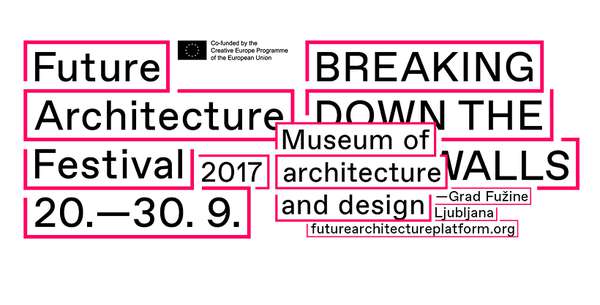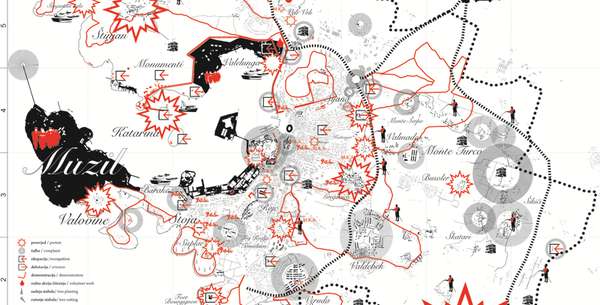Idea by
Pablo Calderon Salazar, La Jetée (Giuditta Vendrame, Paolo Patelli), Rebekka Kiesewetter, Marginal (Zeno Franchini, Francesca Gattello), Parasite 2.0 (Eugenio Cosentino, Stefano Colombo, Luca Marullo)
Call for ideas 2017
The Politics of Queuing and the Architecture of the Queue
The Politics of Queuing and the Architecture of the Queue
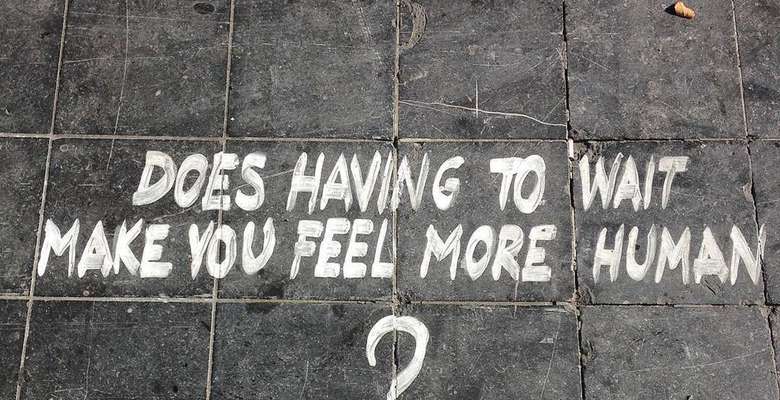
As diverse as the contexts in which queues might take place, and as different they might be in shape, there is one aspect unifying (almost) all of them: the act of waiting implies a clear separation and relation of power between the one waiting and the one able to make the waiting end.
The queue is always directional and directed but at the same time it represents equality – as everyone has its place irrespectively of social status, class, gender, or ethnicity and social differentiation appears rather arbitrary.
The queue presents a metaphor for the ambivalence of the Western notion of public space and reveals potential forces for its possible conversion. We aim to 'make use' of the queue's heterotopic qualities, and explore it as a potential means to foster human agency within a more and more contested urban environment, and thus to instigate and pursue those acts and strategies of common agency as alternatives to the dominant policies of governance.
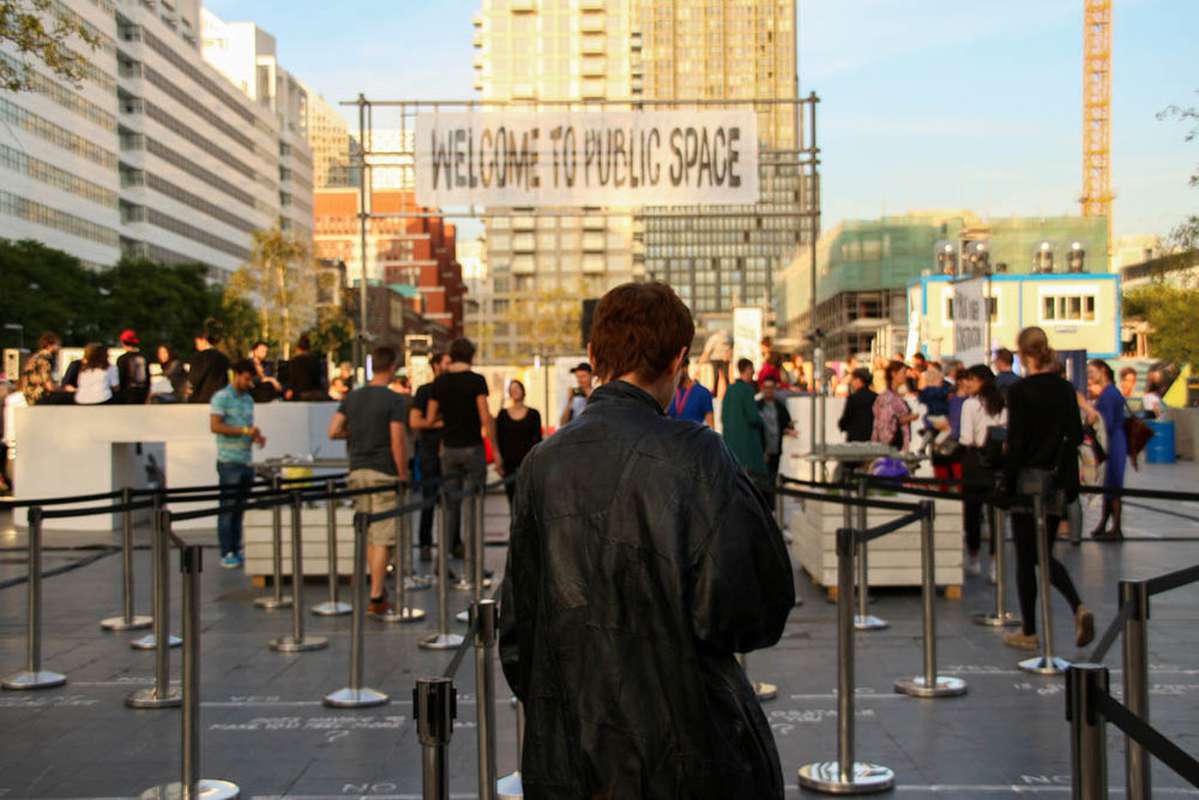
Protocol #1, Maze of Choice. During TodaysArt Festival 2016, The Hague.
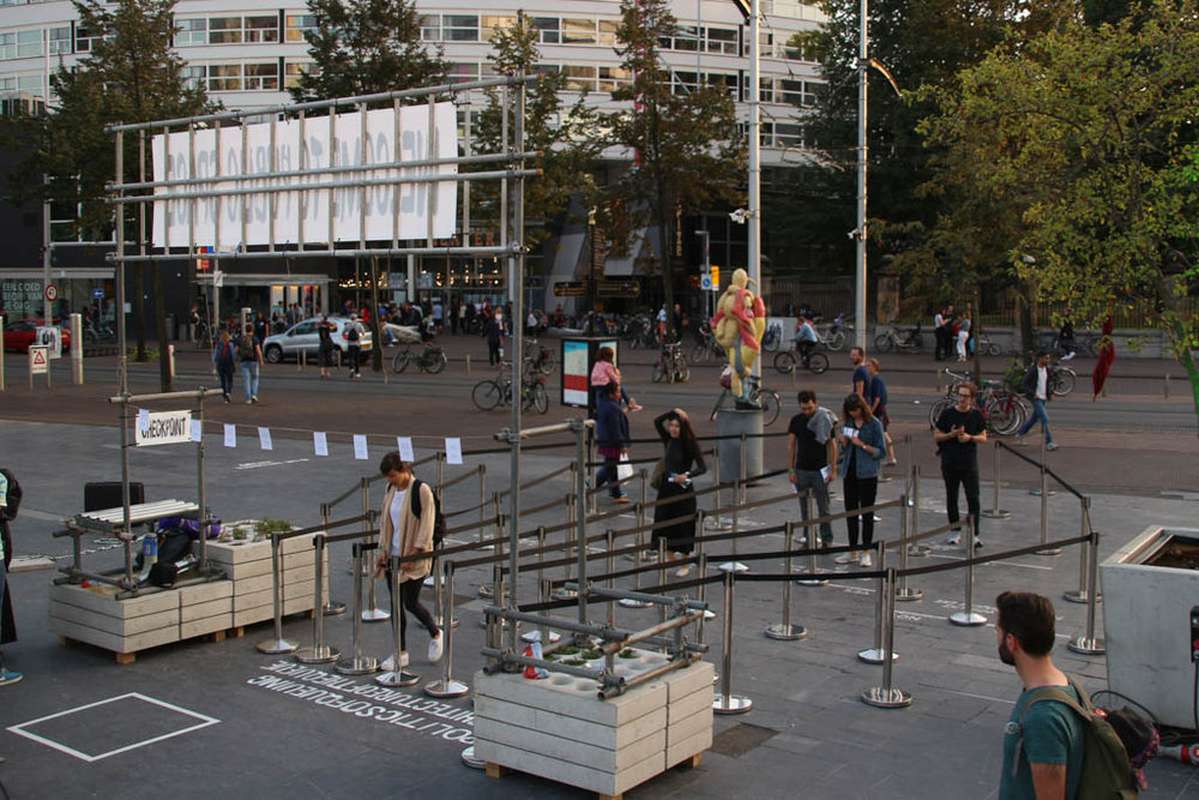
Protocol #1, Maze of Choice. During TodaysArt Festival 2016, The Hague.
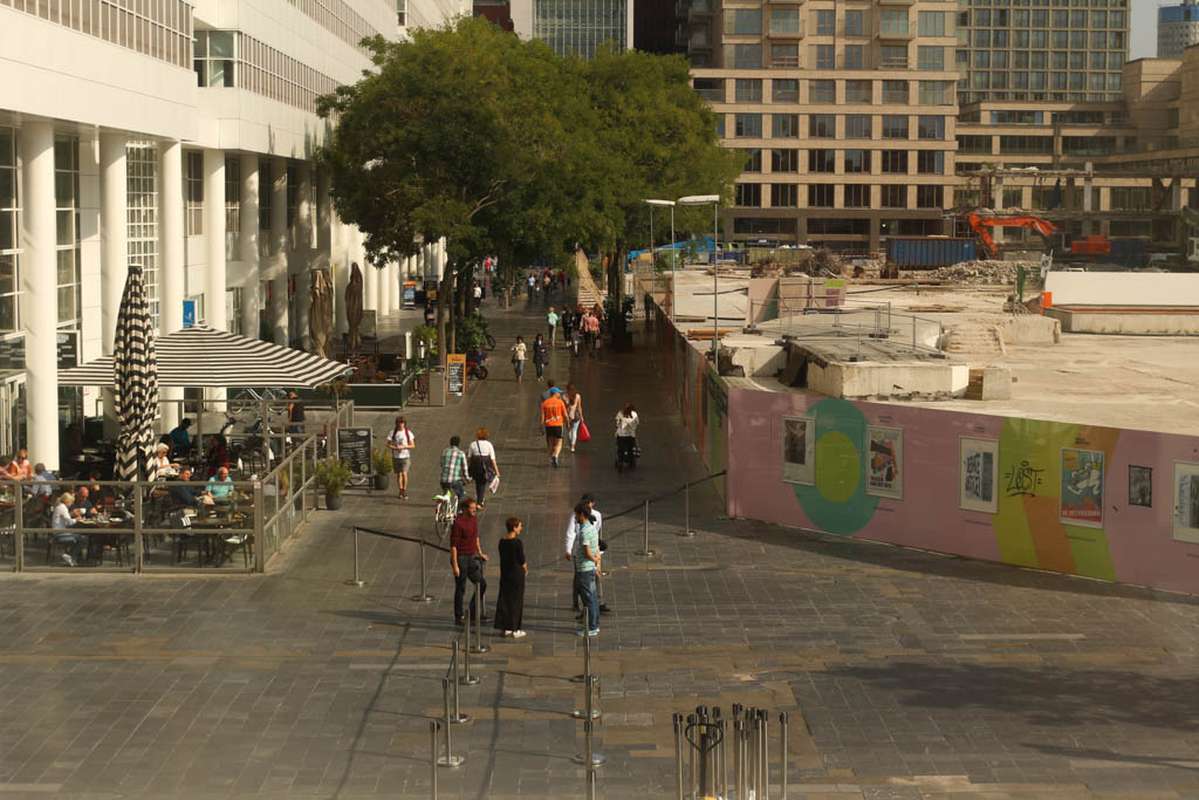
Protocol #1, Experimenting with Structures. During TodaysArt Festival 2016, The Hague.
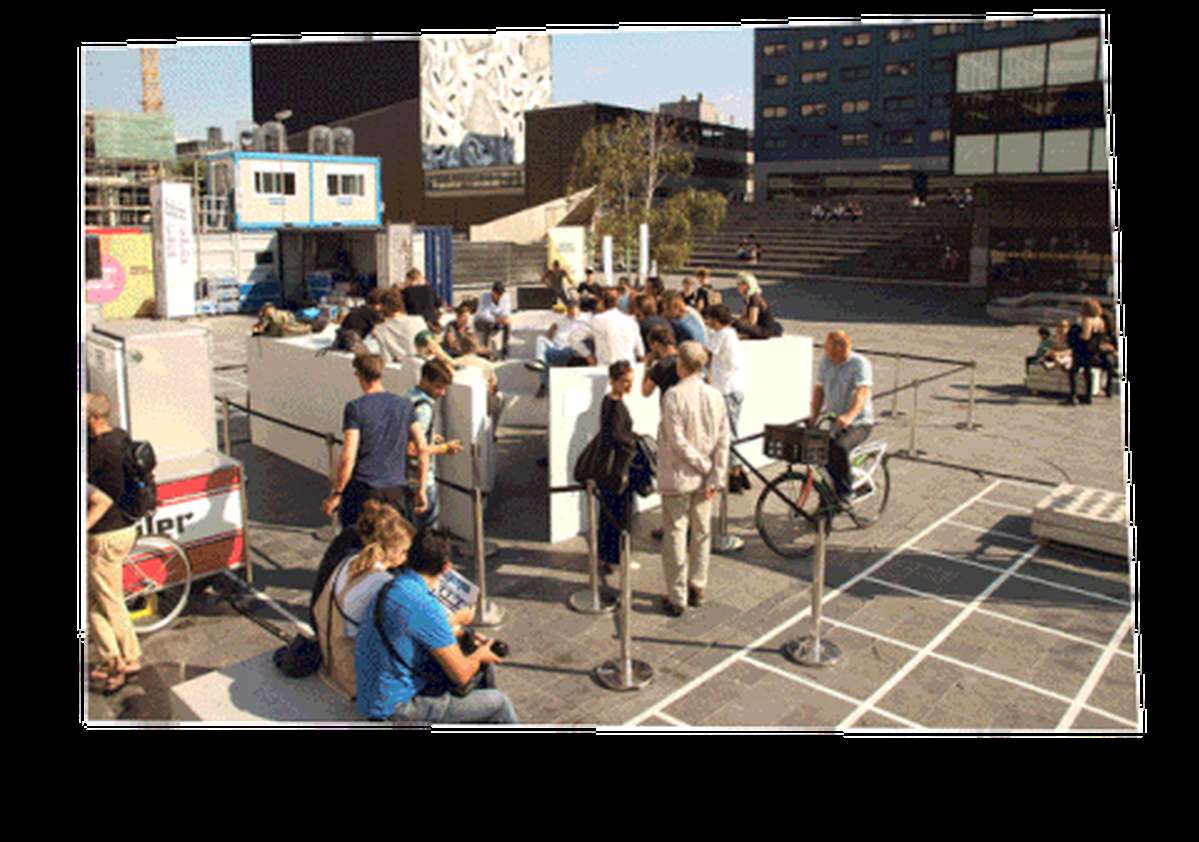
Protocol #, How Public is the Agora? During TodaysArt Festival 2016, The Hague.
The Politics of Queuing and the Architecture of the Queue
The Politics of Queuing and the Architecture of the Queue

As diverse as the contexts in which queues might take place, and as different they might be in shape, there is one aspect unifying (almost) all of them: the act of waiting implies a clear separation and relation of power between the one waiting and the one able to make the waiting end.
The queue is always directional and directed but at the same time it represents equality – as everyone has its place irrespectively of social status, class, gender, or ethnicity and social differentiation appears rather arbitrary.
The queue presents a metaphor for the ambivalence of the Western notion of public space and reveals potential forces for its possible conversion. We aim to 'make use' of the queue's heterotopic qualities, and explore it as a potential means to foster human agency within a more and more contested urban environment, and thus to instigate and pursue those acts and strategies of common agency as alternatives to the dominant policies of governance.
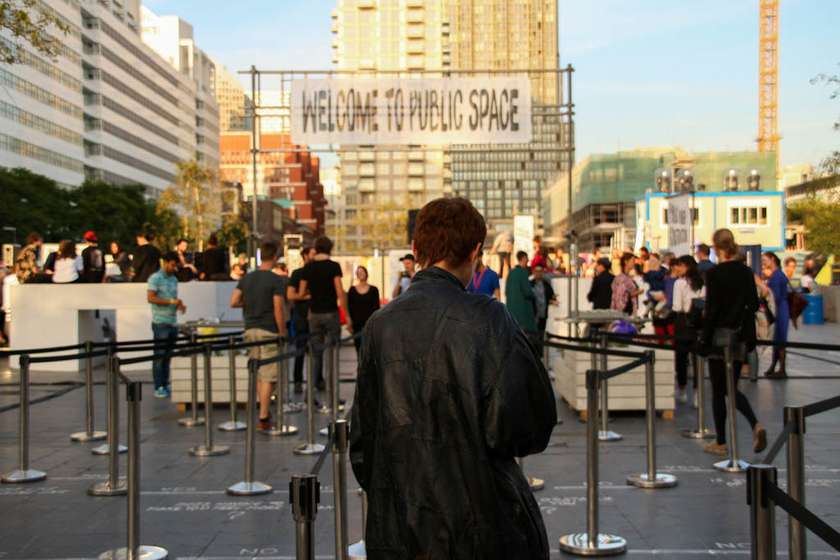
Protocol #1, Maze of Choice. During TodaysArt Festival 2016, The Hague.
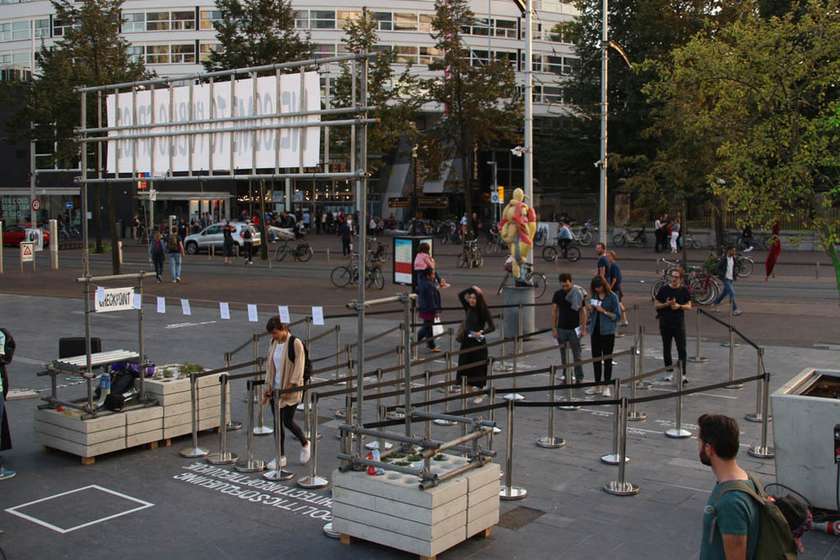
Protocol #1, Maze of Choice. During TodaysArt Festival 2016, The Hague.
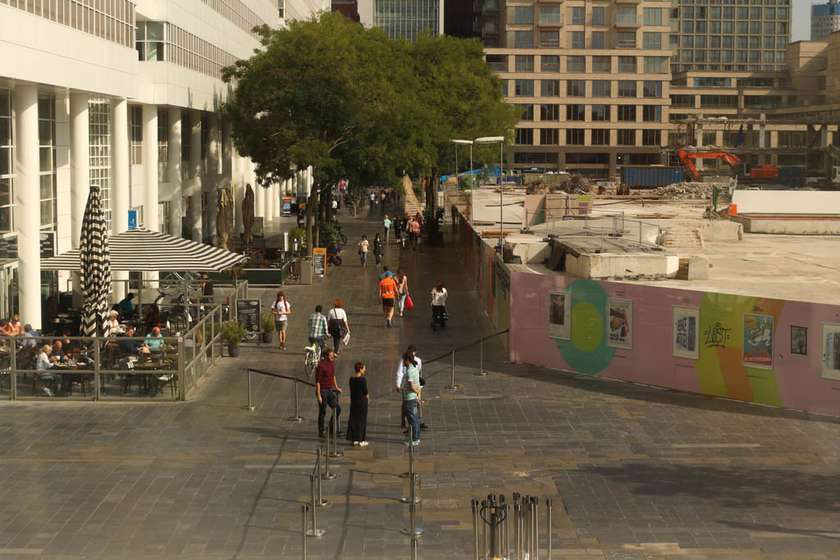
Protocol #1, Experimenting with Structures. During TodaysArt Festival 2016, The Hague.
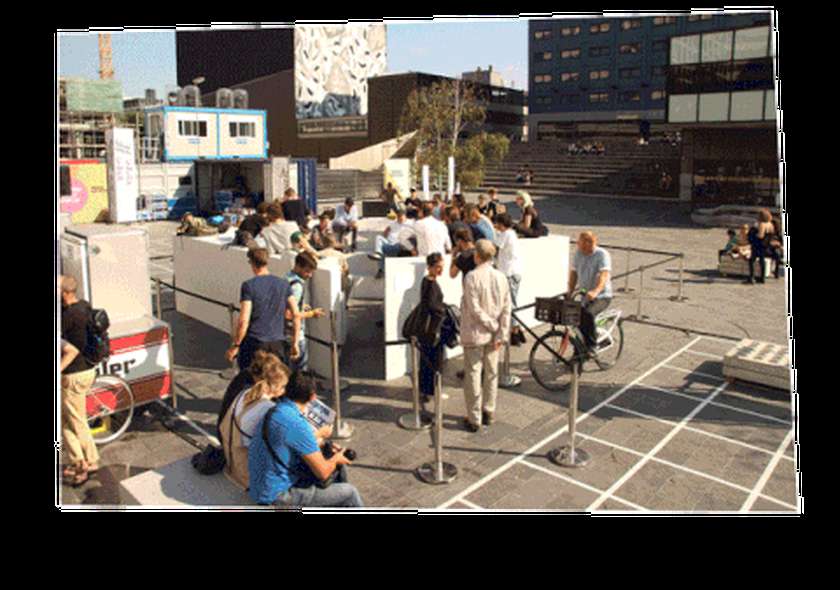
Protocol #, How Public is the Agora? During TodaysArt Festival 2016, The Hague.
